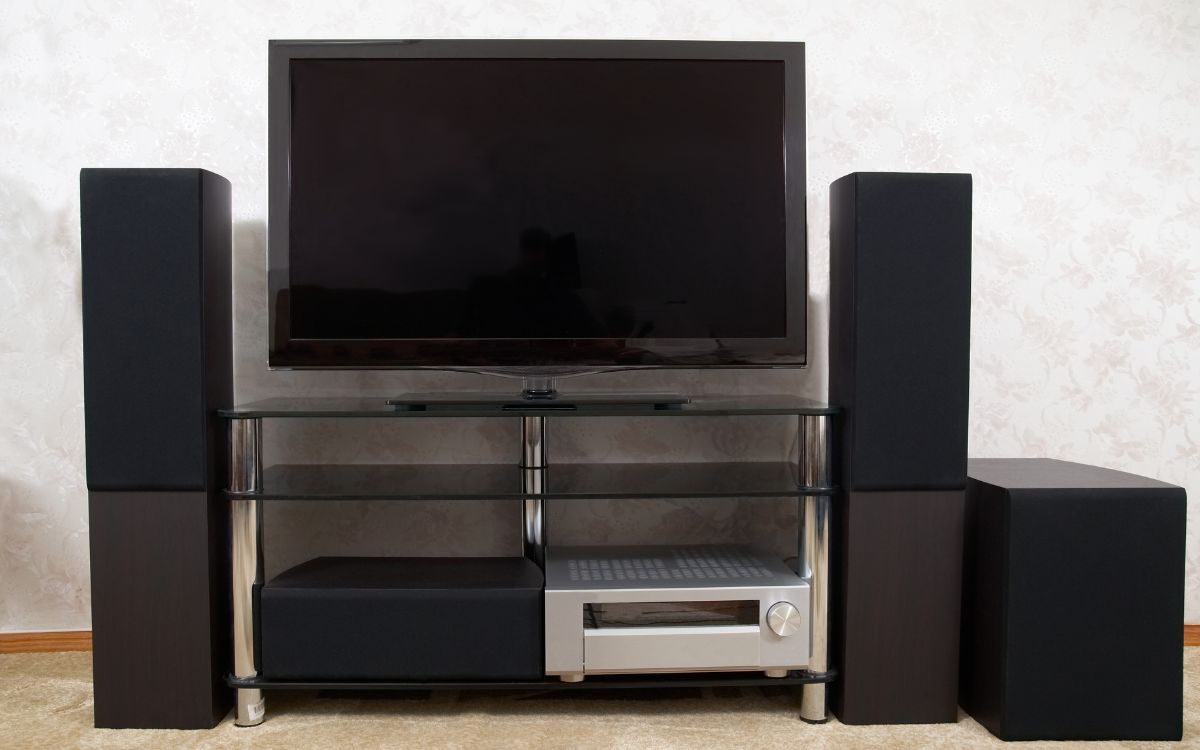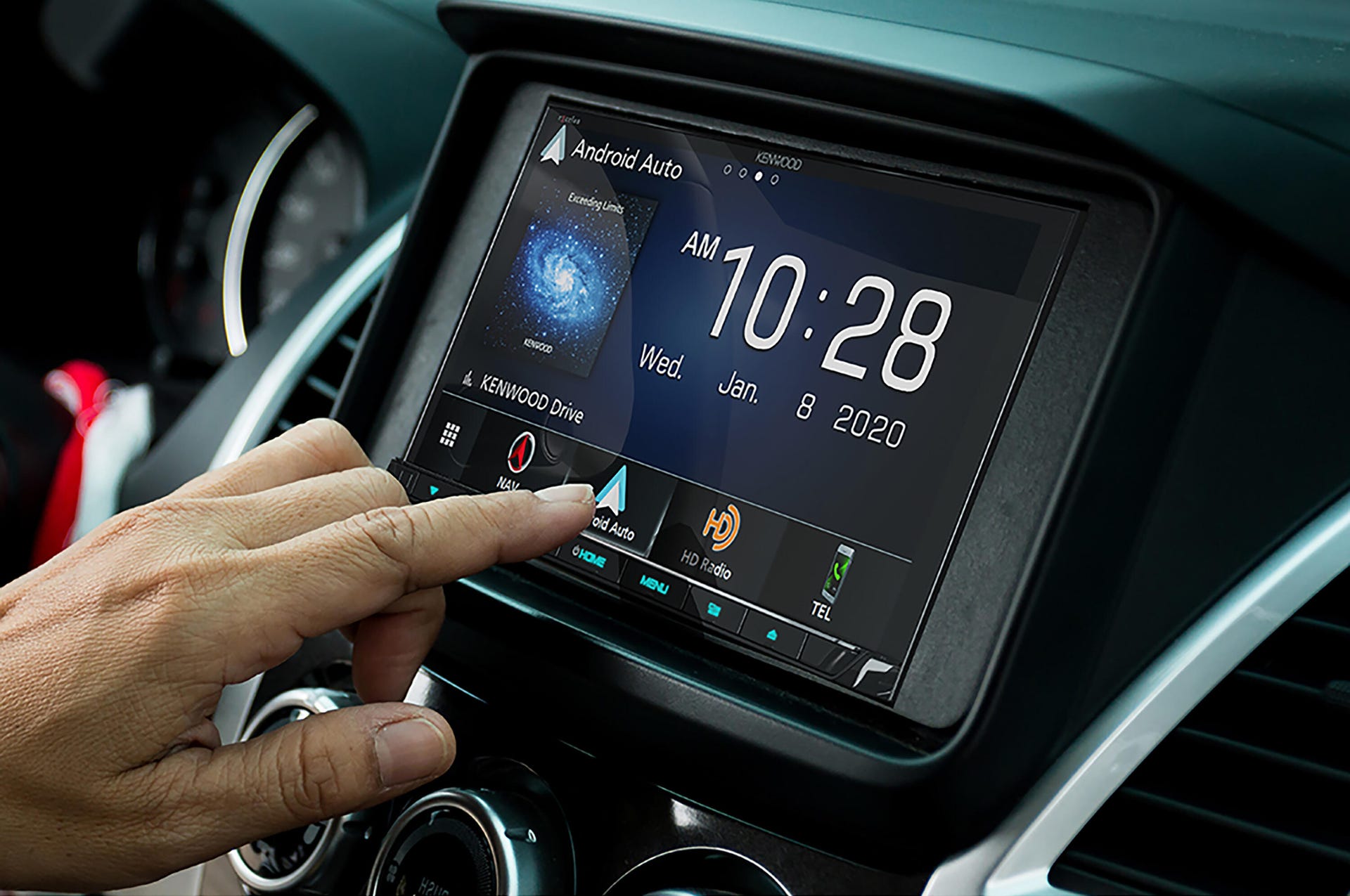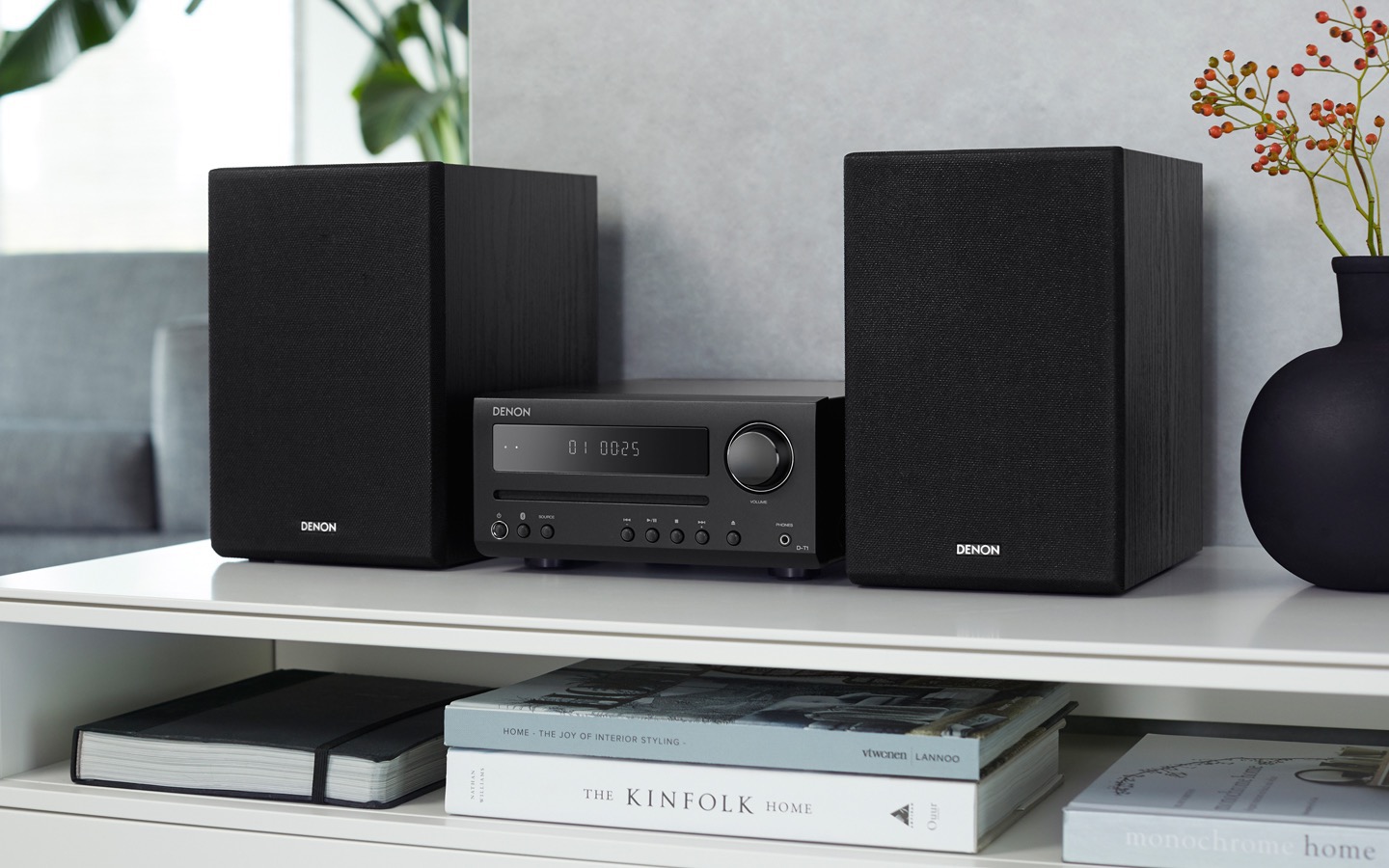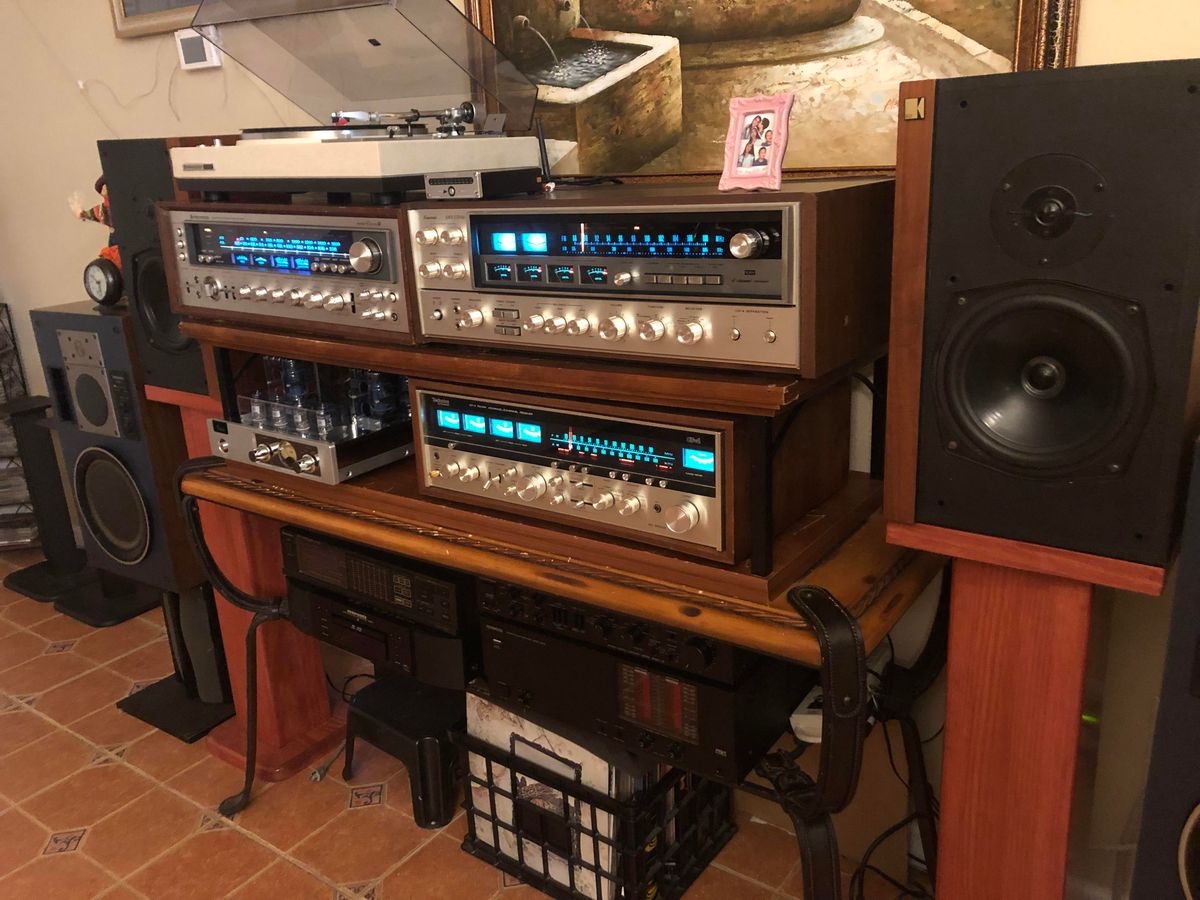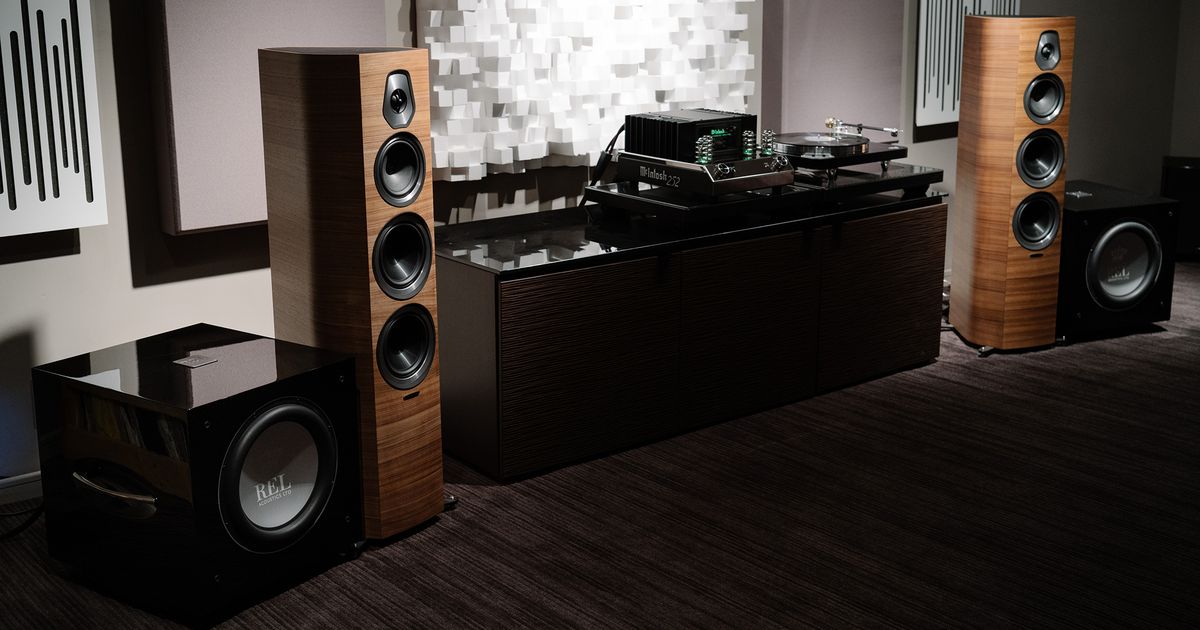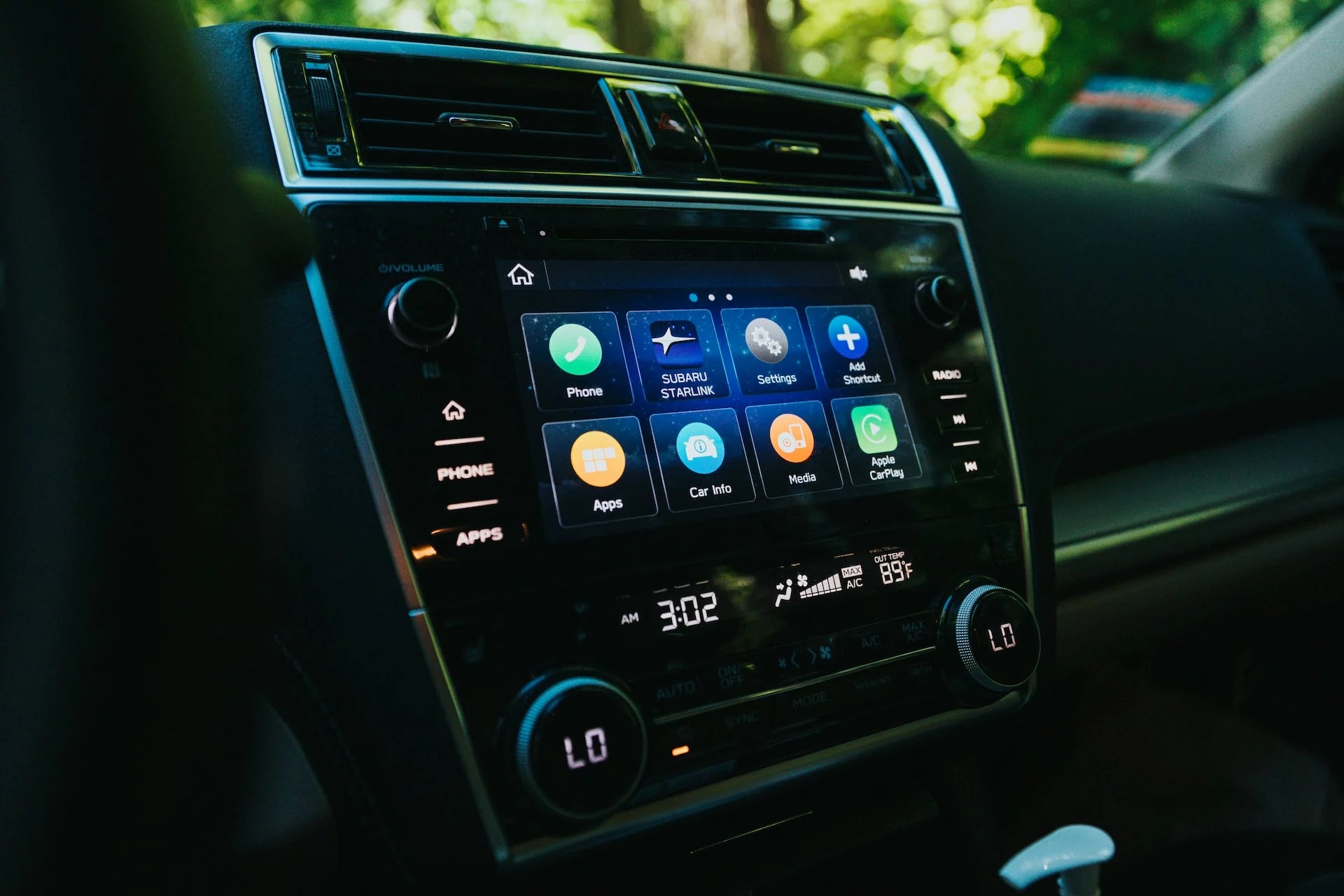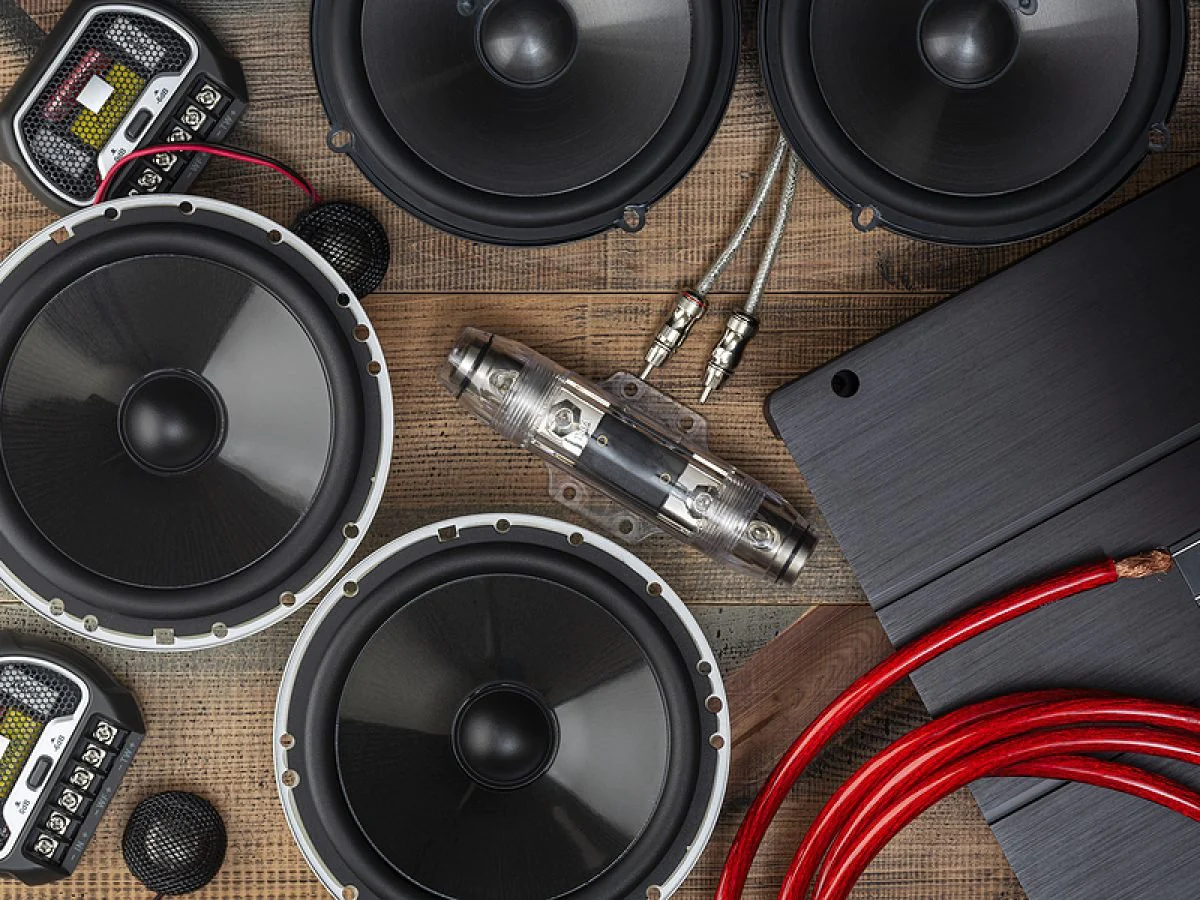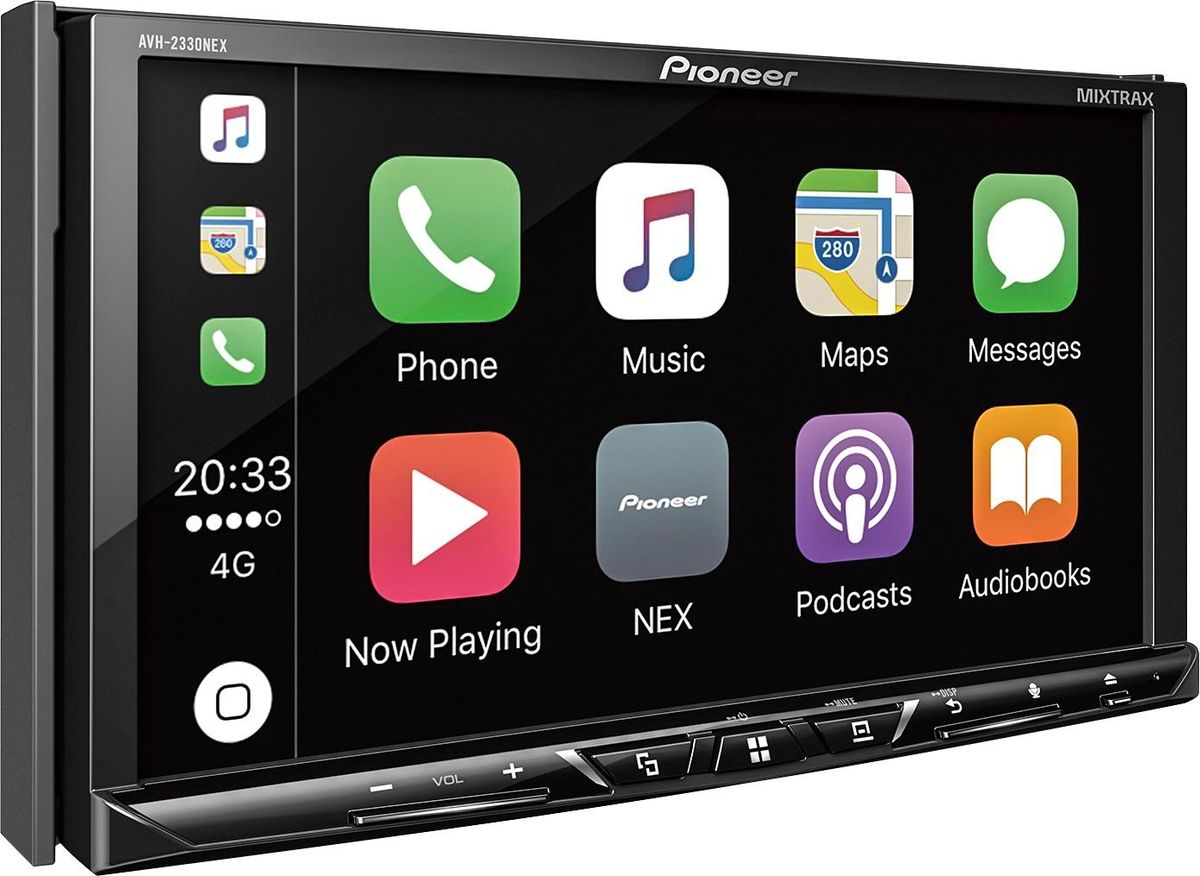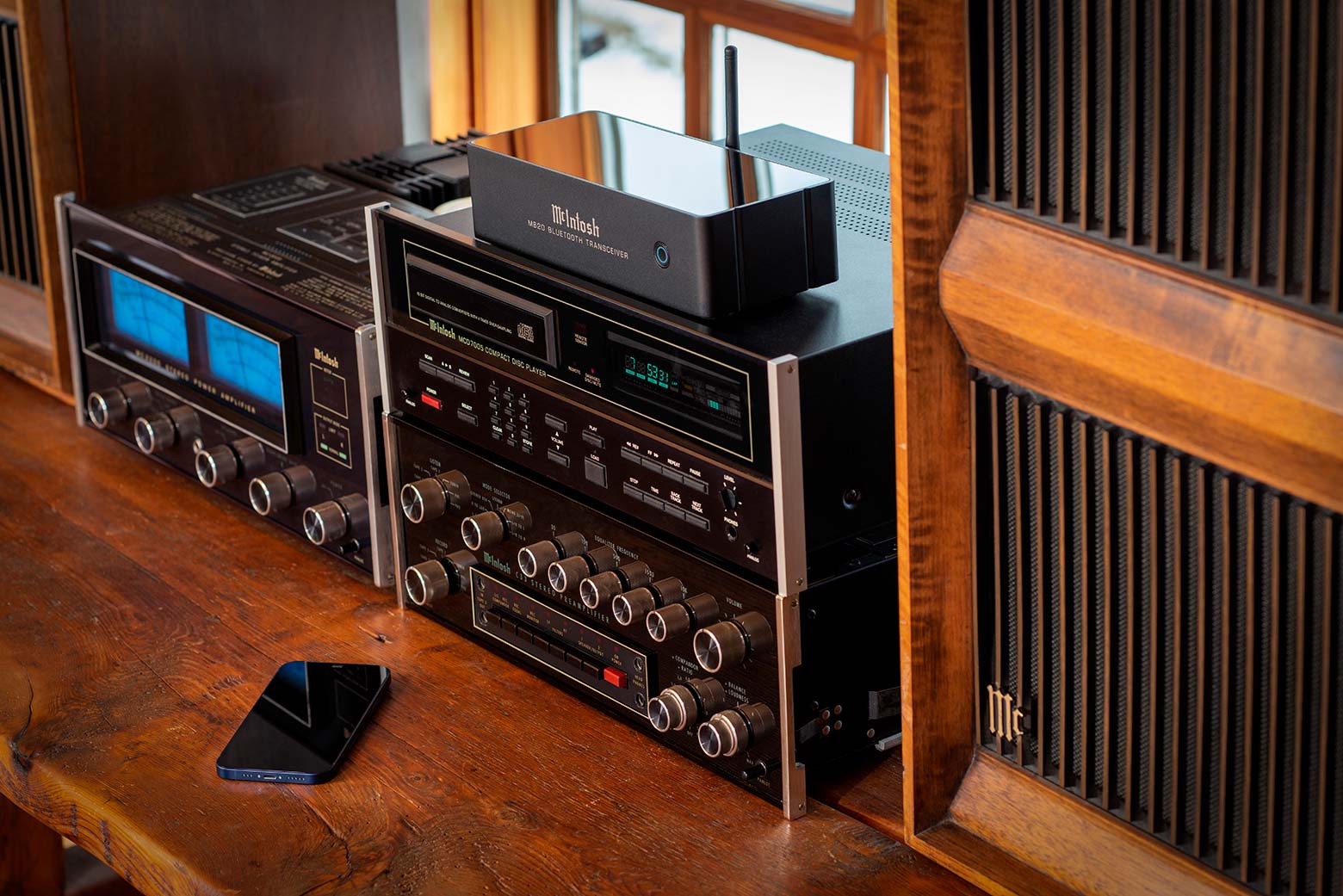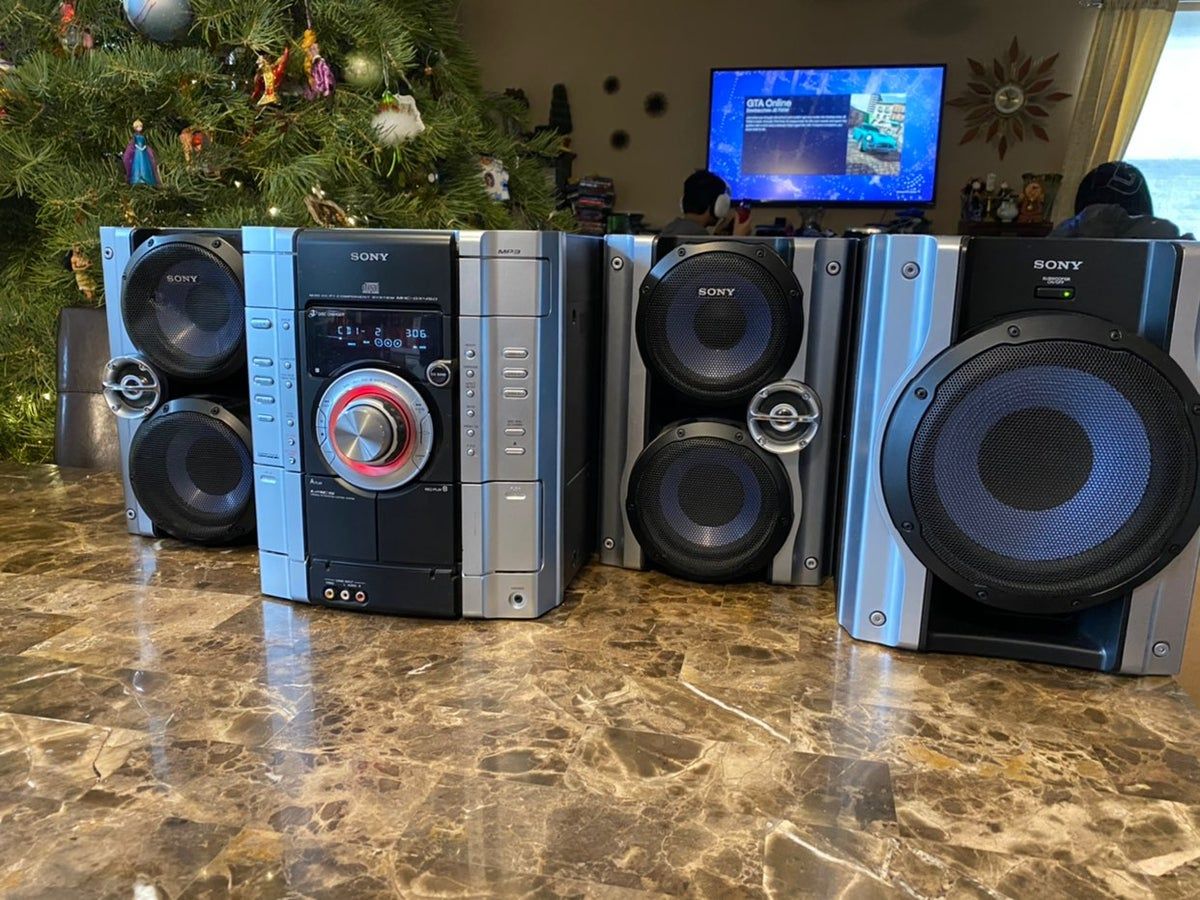Home>Production & Technology>Stereo>How Much For A Car Stereo System
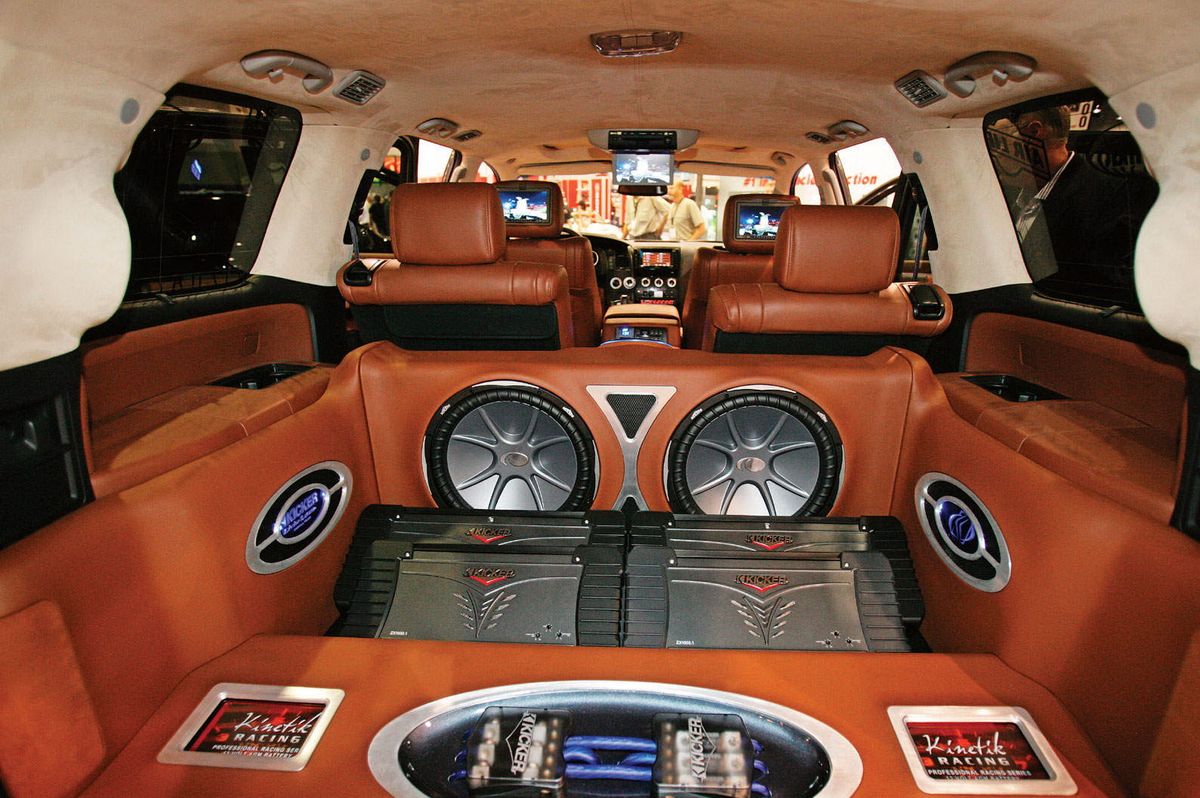

Stereo
How Much For A Car Stereo System
Modified: January 22, 2024
Discover the cost of a car stereo system. Find out how much to budget for a quality stereo installation and upgrade your car audio experience.
(Many of the links in this article redirect to a specific reviewed product. Your purchase of these products through affiliate links helps to generate commission for AudioLover.com, at no extra cost. Learn more)
Table of Contents
Introduction
A car stereo system is an essential component of any vehicle, providing entertainment and enhancing the overall driving experience. Whether you enjoy blasting your favorite tunes, listening to podcasts, or staying up to date with the latest news, a high-quality car stereo system can make all the difference.
However, when it comes to purchasing a car stereo system, the options can be overwhelming. From basic models with limited functionality to advanced systems with cutting-edge features, the choices are endless. Additionally, the cost can vary significantly depending on various factors.
In this article, we will explore the factors to consider when buying a car stereo system, the types of systems available, the key components to look for, and how much you can expect to pay. Whether you’re a music enthusiast or just looking to upgrade your vehicle’s audio capabilities, this guide will help you navigate the world of car stereo systems and make an informed decision.
So, let’s dive in and find out how much it costs to have a top-notch car stereo system installed in your vehicle.
Factors to Consider
Before diving into the cost of a car stereo system, it’s important to consider a few key factors that can influence your buying decision:
- Sound Quality: One of the most critical factors when selecting a car stereo system is the sound quality it delivers. Consider the power output, frequency response, and the ability to adjust bass, treble, and balance settings.
- Compatibility: Make sure that the car stereo system you choose is compatible with your vehicle’s make and model. Check for the necessary wiring harness and mounting brackets.
- Connectivity Options: The ability to connect your smartphone, MP3 player, or other devices to the car stereo system is essential for a seamless audio experience. Look for Bluetooth, USB, and auxiliary input options.
- Expandability: Consider whether you want the option to expand your car stereo system in the future. Some systems offer compatibility with additional speakers, amplifiers, or subwoofers.
- User-Friendliness: A car stereo system should be easy to navigate and operate. Look for intuitive controls, a clear display, and user-friendly interfaces.
- Brand Reputation: Research and choose reputable brands known for their quality and reliability. Reading reviews and seeking recommendations can help in making the right choice.
By considering these factors, you can narrow down your options and choose a car stereo system that best suits your preferences and requirements.
Types of Car Stereo Systems
Car stereo systems come in various types, each offering different features and functionalities. Here are the most common types of car audio systems:
- Single-DIN: This is the most basic type of car stereo system, consisting of a single slot for the head unit. It typically has a smaller display and limited features.
- Double-DIN: Double-DIN car stereo systems have a larger display and provide additional features such as touchscreen functionality, built-in GPS navigation, and more advanced sound tuning options.
- Media Receiver: Media receivers, also known as digital media receivers, are designed for those who primarily rely on their smartphones for music playback. They offer USB and Bluetooth connectivity options to stream music from your device.
- CD/DVD Receiver: CD/DVD receivers allow you to play audio CDs and DVDs, making them a good choice if you have a collection of physical media. Additionally, they often come equipped with Bluetooth and USB connectivity.
- Navigation Receiver: Navigation receivers are ideal for those who frequently travel and require GPS navigation. They offer comprehensive navigation features along with multimedia playback capabilities.
- Custom Entertainment System: For those who seek a truly immersive audio-visual experience in their car, custom entertainment systems offer features like multiple screens, rear-seat entertainment, and advanced audio processing options.
When choosing the type of car stereo system, consider your specific needs, budget, and desired features. It’s important to strike a balance between functionality and affordability to find the right system for you.
Key Components
A car stereo system consists of several key components that work together to deliver high-quality audio. Understanding these components will help you make an informed decision when purchasing a car stereo system. Here are the main components to consider:
- Head Unit: The head unit, also known as the receiver or deck, is the centerpiece of the car stereo system. It controls the audio and provides various features such as AM/FM radio, CD/DVD player, Bluetooth connectivity, and USB inputs.
- Speakers: The speakers are responsible for producing the sound in your car. A stereo system typically includes two or more speakers, including tweeters for high frequencies and woofers for low frequencies. Consider the size, power handling, and sensitivity of the speakers for optimal performance.
- Amplifier: An amplifier boosts the audio signal from the head unit and delivers it to the speakers. It enhances the power and clarity of the sound, especially at higher volumes. Look for an amplifier that matches the power output and impedance of your speakers.
- Subwoofer: If you enjoy deep and powerful bass, a subwoofer is a crucial component. It is designed specifically to reproduce low-frequency sounds and can greatly enhance the audio experience. Subwoofers come in various sizes and power ratings.
- Wiring and Cables: To connect all the components together, a proper wiring and cable setup is necessary. This includes speaker wires, RCA cables, power cables, and connectors. Opt for high-quality wiring to ensure excellent sound transmission and minimize interference.
Choosing the right components for your car stereo system is essential to achieve the desired sound quality and performance. Consider your personal preferences, budget, and the compatibility of the components with your vehicle.
Price Range
The price range for car stereo systems can vary greatly depending on the brand, features, and quality. Here’s an overview of the general price range you can expect for different types of car stereo systems:
- Single-DIN Systems: Basic single-DIN car stereo systems can range from around $50 to $200. These entry-level systems typically offer standard features such as AM/FM radio, CD player, and basic connectivity options.
- Double-DIN Systems: Double-DIN car stereo systems with more advanced features and larger displays can range from $200 to $1000 or more. The higher-end models often include touchscreen functionality, built-in navigation, smartphone integration, and advanced sound tuning capabilities.
- Media Receivers: Media receivers are generally more affordable, with prices ranging from $50 to $300. These systems focus on smartphone connectivity, offering USB, Bluetooth, and auxiliary input options to stream music from your device.
- CD/DVD Receivers: CD/DVD receivers typically range from $100 to $500. They provide the versatility of playing audio CDs and DVDs along with modern connectivity options like Bluetooth and USB.
- Navigation Receivers: Navigation receivers with comprehensive GPS navigation features can range from $300 to $1500 or more. These systems offer a combination of multimedia playback and advanced navigation capabilities.
- Custom Entertainment Systems: Custom entertainment systems, with multiple screens and advanced audio processing, can range from $1000 to several thousand dollars. The price can vary significantly depending on the complexity of the system and the installation requirements.
It’s important to note that the prices mentioned here are rough estimates and can vary based on factors like brand reputation, added features, and installation costs.
Consider your budget and the specific features you prioritize to determine the price range that suits your needs. Remember that investing in a higher-quality car stereo system can result in better sound performance and durability.
Cost Factors
When considering the cost of a car stereo system, there are several factors that can influence the final price. Understanding these cost factors will help you plan your budget accordingly. Here are the main factors to consider:
- Brand and Quality: The brand reputation and the overall quality of the components can greatly impact the cost. Well-known brands tend to command higher prices due to their reputation for reliability and performance.
- Features and Functionality: The number and complexity of features and functionalities in a car stereo system can affect the price. Systems with advanced features like built-in navigation, touchscreen displays, and smartphone integration will generally be more expensive.
- Power Output: The power output of the system, measured in watts, can influence the cost. Systems with higher power output tend to be more expensive, as they require more advanced amplifiers and speakers to handle the increased power.
- Additional Accessories: Additional accessories such as subwoofers, amplifiers, and wiring kits can add to the overall cost. These accessories enhance the audio performance but come with their own price tags.
- Installation: The cost of installation can vary depending on the complexity of the system, the vehicle’s make and model, and the labor costs in your area. Consider whether you will be installing the system yourself or if you’ll need professional installation services.
It’s important to weigh these cost factors against your budget and priorities. While it’s tempting to opt for the most feature-rich system, it’s crucial to strike a balance between your desired features and your budget limitations.
Do thorough research, read customer reviews, and compare prices from different retailers to ensure you’re getting the best value for your money.
Installation Cost
The cost of installing a car stereo system can vary depending on several factors. While some people prefer to install the system themselves to save money, others may choose to hire a professional for a hassle-free and efficient installation. Here are the key factors that can affect the installation cost:
- Complexity of the System: The complexity of the car stereo system plays a significant role in the installation cost. Systems with advanced features like built-in navigation, multiple screens, and custom wiring can require more time and expertise to install, resulting in higher costs.
- Vehicle Make and Model: The make and model of the vehicle can impact the installation cost. Some vehicles may have more intricate dashboards or wiring systems, requiring additional time and effort during installation.
- Labor Costs: The hourly labor rates of installation technicians can vary based on location and skill level. It’s important to research and compare the rates of reputable installers in your area to get an idea of what to expect.
- Additional Accessories: If you’re installing additional accessories like amplifiers, subwoofers, or custom speaker setups, the installation cost may increase. These accessories often require additional wiring, mounting, and configuration.
- Professional vs. DIY Installation: Choosing to install the system yourself can save you money, but it’s important to factor in the time and effort required. If you’re not experienced with car stereo installations, it may be worth investing in professional installation to ensure a proper and efficient setup.
It’s recommended to get quotes from different installation providers and compare the prices and services offered. Be sure to inquire about warranties, guarantees, and any additional charges that may apply.
Remember, a professional installation ensures proper integration of the car stereo system into your vehicle, minimizing the risk of damage and maximizing audio performance.
Conclusion
When it comes to buying and installing a car stereo system, there are several factors to consider. Understanding these factors will help you make an informed decision and ensure that you get the best value for your money.
Sound quality, compatibility, connectivity options, expandability, user-friendliness, and brand reputation are essential factors to consider when selecting a car stereo system. Additionally, you should determine the type of system that suits your needs, whether it’s a single-DIN or double-DIN system, a media receiver, a CD/DVD receiver, a navigation receiver, or a custom entertainment system. Each type offers different features and functionalities at various price points.
Remember to take into account the key components of a car stereo system, including the head unit, speakers, amplifier, subwoofer, and wiring. Choosing high-quality components that work well together is crucial for optimal sound performance.
When it comes to budgeting, consider the price range of different types of car stereo systems and the various cost factors involved. The brand, features, power output, additional accessories, and installation costs can all affect the final price.
Whether you decide to install the system yourself or hire a professional, make sure to research and compare rates, ensuring the installation is done correctly and efficiently.
In conclusion, by considering these factors and factors mentioned earlier, you can find a car stereo system that meets your audio needs, fits your budget, and enhances your driving experience. Enjoy your favorite music, podcasts, and more with a high-quality car stereo system tailored to your preferences.

